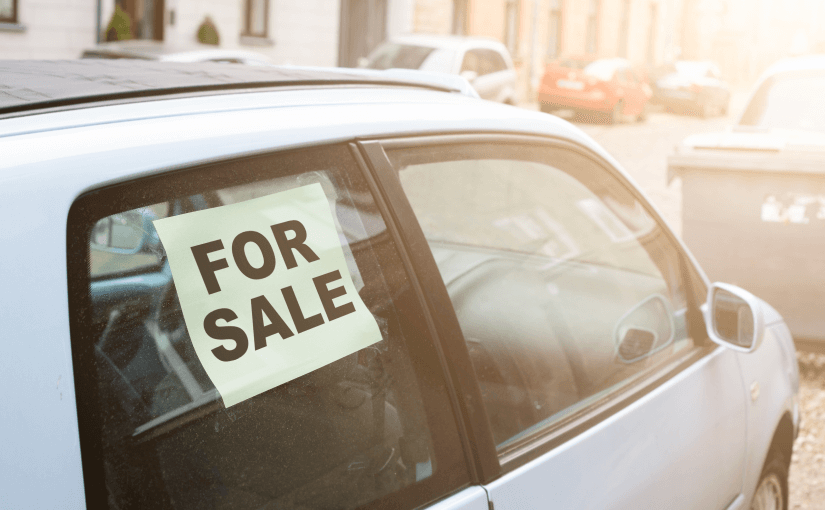Buying a second-hand car is ideal if you’re on a tight budget. You’ll get a great vehicle without spending too much. However, finding a good used car requires a lot of due diligence. You can’t just choose one and drive off. A lot of thought must be put into your second-hand car purchase.
To help you get the most out of your used car purchase, we’ve created this detailed guide. Get some useful advice, learn your rights as a buyer, and know what costly mistakes to avoid.
Do your research on used cars
A car is one of the most important purchases you’ll ever make. Doing research and a thorough background check will help ensure that you choose the right vehicle. This step is even more important for buying used cars. Pictures can only tell you so much. You’ll never really know what type of condition a car is actually in until you dig deeper.
With a second-hand car, you need to inspect every nook and cranny to know the state of the vehicle. You also must discuss the history of the vehicle with the private seller or dealership. Take it for a test drive and have it inspected by a mechanic too. A used car can be a worthwhile investment as long as you take the necessary steps.
How do you investigate a used car?
This quick video explains the basics of what you need to look for when buying a car privately. It covers the most essential things you must investigate for a successful used car purchase.
What should you research when buying a used car?
When buying a used car, whether from a private seller or a dealership, make sure you check out the following. Save yourself from heartache and headaches by making sure your used car purchase is above board.
Vehicle Identification Number (VIN)
Every Vehicle Identification Number (VIN) is unique. A VIN is made up of 17 characters, a mix of digits and letters, and acts as a unique identifying code for a specific car. When you look up a car’s VIN, you’ll see its features, specifications, and manufacturer.
With a VIN, you can track a car’s history such as any warranty claims, insurance, registration, reports, and more. By searching a car’s VIN, you can ensure that you’re buying a quality used car without any major issues.
Personal Properties Security Register (PPSR)
After looking up the car’s VIN, you should also check out the Personal Properties Security Register (PPSR) to verify that the car is legally owned by the seller.
A PPSR search will tell you if the vehicle has any security interest, or any money owed, held against it. The search will also give you information such as:
- The car’s make and model information
- Written off status
- Stolen status
You can also check websites that provide car ownership reports. Ensure that the seller’s name is on the report. If not, inform the authorities right away and find another used car to buy.
Service history check
Check the service history of the car to see if it’s been well maintained. A car that’s well taken care of is less likely to have major issues in the future. You’ll also know if it’s suffered any severe damage due to an accident with a service history. Visit the National Vehicle Service Register (NVSR) to see a used car’s service history.
Odometer reading verification
The odometer reading will tell you how many kilometres a car has travelled. Usually, cars that have travelled less are in better condition and are a better deal. If the car’s odometer is suspiciously low, it may have been tampered with.
Know your rights when buying a used car
As a buyer, you have certain consumer rights. Even if you’re buying a used car, there are laws that protect you in case something goes wrong with your purchase. Here are a few things to keep in mind when buying a used car:
Car warranty
Each state imposes its own car warranty guidelines. However, these rules are only applied to used car purchases made through car dealerships. If you purchase a used car from a private seller, regardless of state or territory, you’re not legally entitled to a car warranty.
When you buy a used car from a dealership in the Australian Capital Territory (ACT), Northern Territory (NT), New South Wales (NSW), or Victoria (VIC), you can expect the following car warranty rules:
-
Used cars with less than 160,000 km odometer reading and are under 10 years old will have a three-month or 5,000 km statutory warranty.
For dealerships in Queensland (QLD), the follow these car warranty rules:
- Used cars with less than 160,000 km odometer reading and are under 10 years old will have a three-month or 5,000 km statutory class A warranty.
- Used cars with over 160,000 km odometer reading and over 10 years old will have a one-month or 1,000 km statutory class B warranty.
For dealerships in South Australia (SA), you can expect the following:
- Used cars costing $3,001 to $6,000 carry a two-month or 3,000 km statutory warranty.
- Used cars costing over $6,001 and higher will carry a three-month or first 5,000 km statutory warranty.
In Western Australia (WA), dealerships are expected to abide by these car warranty rules:
- Used cars that are less than seven years old and have travelled under 150,000 km will get a three-month or 5,000 km statutory warranty.
- Used cars that are ten to 12 years old and have 150,000 km to 180,000 km odometer readings will have a one-month or 1,500 km statutory warranty.
Lastly, in Tasmania (TAS), dealerships follow these guidelines:
-
Used cars of less than seven years old and have travelled no more than 120,000 km will get a three-month or 3,000 km statutory warranty.
Cooling off period
The cooling off period is the duration after the purchase when buyers can cancel the agreement with minimal changes. For example, if you buy a used car but change your mind immediately after, the cooling off period is when you can cancel the purchase. Like car warranties, cool off periods differ depending on the state or territory.
In ACT and VIC, you’ll get:
- A three-day cooling off period.
- If you choose not to go through with your purchase, you may be charged at least $100or 1% of the purchase price of the car.
In NSW, you can expect the following:
- A one-day cooling off period if you arrange credit with the dealer.
- A dealer can charge you $250 or 2%, whichever is higher if you choose to walk away from the purchase.
In QLD, cooling off period rules are as follows:
- A one-day cooling off period.
- The dealer can charge a non-refundable deposit of $100 or less.
In SA, the cooling off period guidelines:
- A two-day cooling off period.
- A dealership may request a 10% deposit.
- A dealership can charge $100 or 2% of the purchase price, whichever is lower if the buyer decides not to go through with the purchase.
In all states and territories, buyers are required to cancel the agreement in writing within the cooling off period. States and territories with no cooling off period are NT, TAS, and WA. Once the purchase agreement has been signed in these areas, you can no longer cancel the purchase.Take note, there is also no cooling off period for used cars purchased from private sellers either.
Costly used car buying mistakes to avoid
Because of all that research, sometimes, things fall through the cracks. When buying a used car, here are some common pitfalls you must avoid:
Not taking it out for a test drive
A test drive is one of the most important things you should do before finalising the deal. By testing driving the car, you’ll be able to see how it feels on the road, test out safety features, and spot any potential problems that the seller may have neglected to tell you.
Foregoing a car inspection
A professional inspection isn’t free, which is why some may choose to forego it. But doing so may cost you much down the line. With a car inspection, a mechanic can see if there are any underlying issues with the car and how well-maintained it is.
Failing to shop around for a good loan
Sometimes, people get too distracted by checking out the used car that they completely forget about the used car loan. The loan you take out is just as important as the car. Look at the different used car loans in the market. Compare interest rates and fees by using this car loan repayment calculator. Choose one that fits your needs perfectly.
Buy the best used car with Aussie Car Loans
Ready to buy a used car? Get in touch with Aussie Car Loans today and get the best deal on your used car loan. Call Aussie Car Loans on 1300 889 669 today or get a free quote! We’re here to take the hassle out of finding the perfect loan. Just get in touch with us and get the best rates for used cars anywhere in Australia.





